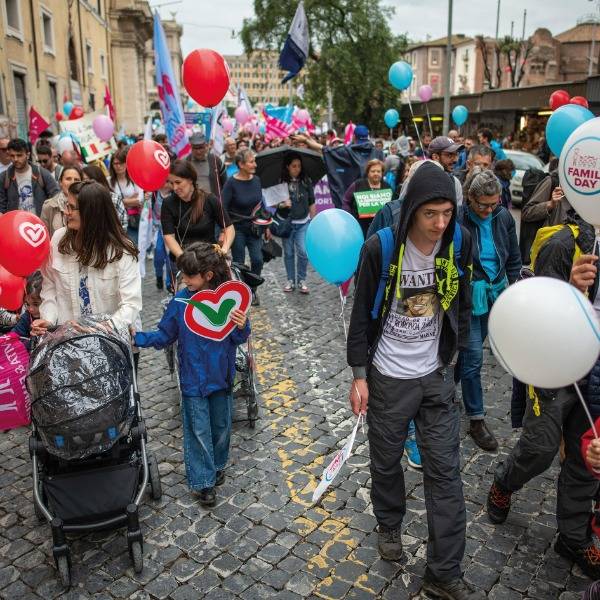'Soviet history is a narrative of train schedules," writes Masha Gessen, "of the chains of cattle cars transporting desperate, cold and hungry people from one end of the empire to another." Her narrative is a family memoir: the story of her two grandmothers and their children and grandchildren. But it is also a narrative on a much larger scale the sweep of history that these women lived through: the Second World War, Stalin's Great Terror, and Russian antiSemitism. This is history played out across huge distances: from Moscow to Siberia, from the Bialystok ghetto to Turkmenistan, from Russia to America, and back again. Ester Goldberg, Gessen's paternal grandmother, grew up in the thriving, but fated, Jewish community of 1930s Bialystok. In 1940, during the Soviet occupation of Bialystok, Ester managed to secure a place at a Moscow university, but the university was soon evacuated to Ashkhabad in Turkmenistan. A year later, a telegram informed Ester that her parents had been exiled to Siberia. Her father Yakub was killed, but she and her mother eventually returned to live in Moscow.
While researching her grandmothers' lives, Gessen discovered that Ester had arrived in Ashkhabad within weeks of her other grandmother, Rozalia. Rozalia was born in Ukraine but grew up in Moscow during the start of the Great Terror Stalin's campaign of arrests, deportations and executions. Rozalia's husband Samuil was drafted soon afterwards and died at the front, aged 23, leaving Rozalia alone with a baby daughter in Ashkhabad.
Rozalia eventually resettled in Moscow and met Ester in 1950, and, in "an absurdly cinematic culmination of these women's friendship", their children married and had a daughter, Masha. The family later emigrated to America but, in a reversal of the pattern of exile, Masha decided to return to Moscow.
Gessen presents cataclysmic historical events through the lens of personal experience, evoking their impact on everyday life. As Jewish refugees piled into Ashkhabad, food supplies dwindled, and this, more than the dusty heat or the distinctive, alien culture of a valley in Central Asia, is what her grandmothers remember. "Hunger is a detailed memory of store shelves. When Rozalia and Samuil first arrived in Ashkhabad, the shops sold canned crab meat for kopecks and delicious Turkmen wine, and then it was all gone, within days, as all those cattle cars pulled in."
Two Babushkas also reads Soviet history through the particular experience of the Jewish community. Interwar Communist internationalism meant that, at first, there was a surprising lack of antiSemitism. But during the 1940s and after the war, Jews became increasingly marginalised and persecuted. The story of this family is also an account of the rise of antiSemitism in the Soviet Union.
There are countless memoirs of Jewish life during the Second World War. Looking through archives to research her family's history, Gessen came to believe that there are memoirs of virtually every survivor of the Bialystok ghetto. These contribute to a kind of collective memory, "the traces of genocide inflicted on a people wedded to the written word"; but this intelligent book suggests that these memoirs produce a fractured and complex, rather than a coherent, picture.
Gessen's book reflects the various positions alternately brave and selfpreserving that Jews were forced to adopt in this extraordinary period in history. Her two grandmothers had to deal, in their own way, with reconciling both their Jewishness and their political beliefs with the Soviet authorities. At times they resisted, at others they made compromises. Ester refused to be an informant for the Soviet secret police, until her refusal put her family's life in danger. Rozalia worked for many years as a news translator and censor, editing foreign correspondents' dispatches. Masha Gessen, who is now the Russian correspondent for US News and World Report, notes the irony; but the irony is a consequence of the transformation that has occurred over two generations.
As Rozalia points out, choices were not choices at all when survival itself was in the balance: "[I] was absolutely conscious that my work, to put it bluntly that my work had a bad smell," she tells her granddaughter. "But I held on to it quite consciously. More than that, I loved my job, because, in essence, I was a translator. I was a translator who had to produce very exact translations because I answered for them with my head." Gessen hopes that in the current postdemocratic Russia, where censorship is once again rearing its head, the lessons of the past will not be forgotten.
Two Babushkas is available from Amazon (UK)

